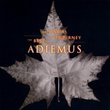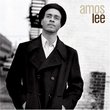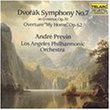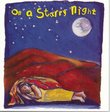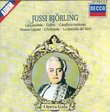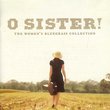| All Artists: Ferruccio Busoni, Kent Nagano, Dietrich Henschel, Kim Begley, Orchestre et Choeur de l'Opéra National Lyon, Eva Janis, Marcus Hollop, Torsten Kerl, Dietrich Fischer-Dieskau Title: Busoni - Doktor Faust Members Wishing: 1 Total Copies: 0 Label: Elektra / Wea Release Date: 1/18/2000 Album Type: Box set Genre: Classical Style: Opera & Classical Vocal Number of Discs: 3 SwapaCD Credits: 3 UPC: 639842550123 |
Search - Ferruccio Busoni, Kent Nagano, Dietrich Henschel :: Busoni - Doktor Faust
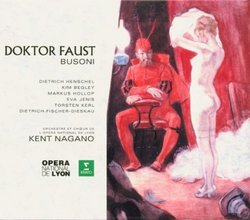 | Ferruccio Busoni, Kent Nagano, Dietrich Henschel Busoni - Doktor Faust Genre: Classical
If you're still waiting to (re)discover the music of Ferruccio Busoni, this set tops the list of several recently released and tempting entrées (among which are Marc-André Hamelin's theatrically vivid account of ... more » |
Larger Image |
CD DetailsSynopsis
Amazon.com If you're still waiting to (re)discover the music of Ferruccio Busoni, this set tops the list of several recently released and tempting entrées (among which are Marc-André Hamelin's theatrically vivid account of the epic Piano Concerto and the Serkin-Schiff collaboration on Music for Two Pianos). Doktor Faust is, after all, the magnificently all-involving summa of this brilliant, eccentric, but neglected composer. Like Goethe, Busoni saw his preoccupation with the Faust legend turn into a lifelong obsession, though his own interpretation actually has very little (directly) to do with Goethe's, drawing instead on the original puppet plays and on his own postromantic view of Faust as the archetypal alienated artist. The result is a richly multilayered work that, for all of its looking backward, suggests some points of comparison with a 20th-century landmark that was premiered within months of Doktor Faust's unveiling: Berg's Wozzeck. Kent Nagano keeps convincing hold on the work's dual focus, blending intellectual intensity with sensual fabrics of sound, and his cast is quite honestly spellbinding, from Dietrich Henschel's versatile portrayal of the title character's complex development to Kim Begley's sardonic tenor Mephistopheles and Eva Jenis's hints of a transfixed Isolde as the Duchess of Parma (despite a tendency toward shrillness at her top). This set includes the Antony Beaumont completion of the score as extra tracks. What's more, now that the 1969 version starring Fischer-Dieskau (who appears here in the speaking role of the Poet) has fallen out of print, this is now the only available full account. Fortunately it does superb justice to a still dimly understood masterpiece. --Thomas May Similarly Requested CDs
|
CD ReviewsAt long last! K. Farrington | Missegre, France | 03/03/2000 (5 out of 5 stars) "I made the unforgiveable mistake of lending my DGG 1969 CD box set of this work to someone in 1992 who due to a complicated set of circumstances could never give it back. Since then I have fretted over the loss of this magnificent work from my collection and today I am the proud owner of this wonderful recording, which is both technically and professionally superior to the older recording. I am delighted at Henschel who does the near impossible for DFF was in top golden voice in the older recording. The orchestra relishes the strange score which comes more to the fore than on the previous recording. I cannot recommend this work enough to anybody who is unfamiliar with it. In its way it is as audacious as Wagner's Ring, it is as musically inventive of an unfamiliar world as Debussy's 'Pelleas et Melisande' and as deep a rumination on the philosophy of determinism as Berg's 'Wozzeck'. The ever changing orchestral moods and Busoni's unique vocal lines evoke an uncanny atmosphere. Busoni's major source of inspiration for the work was the puppet theatre version of the legend rather than Goethe's magnum opus. Due to this fact, an air of mediaevalism underpins the work with occult forces and unfamiliar codes if behaviour. The drama performed by the actors (puppets) is like a superstructure overlaying the subliminal musical argument beneath (the actual forces of good and evil in the macrocosm). The tolling bells and the unearthly harmonies invoke a time that predates Goethe and the Age of Reason, or is as if we have lost those certainties of Transcendental Idealism and are cast adrift in a strange world where metaphysical causation and its Kantian solution have been abandoned. As a consequence, the teleological ethical certainty which derives from this loss makes Faust the actor condemned the moment he summons Mephistopheles who is 'quicker than the thought of man'. He is not to be redeemed and yet the young man who rises from his corpse in the last scene hints at the possibility of some salvage if not salvation from this human (yet cosmic) catastrophe. The Hegelian notion of negation is set out throughout the drama in the fact that every action is opposed by another force. This is exemplified in the final act when Faust is determined to pray yet is prevented from so doing by the ghost of a murdered soldier. This CD set is wonderful and more than makes up for the loss that I have been trying to make good for eight years. I will now relax and stop looking for a version of this work and enjoy this one for years to come." Decadent, extravagant and hugely enjoyable. Gerardo Cabrera Munoz | M�xico | 02/11/2000 (5 out of 5 stars) "Busoni is back. In the last 12 months we have had a new recording of his early opera Die Brautwahl from TELDEC, a sensational new recording of his awesome Piano Concerto from Hyperion, and now the first complete recording of Doktor Faust. If you already own the 1969 Dietrich Fischer-Dieskau recording (DG), this new production is still worth having. The extra material is interesting and in general this is the more fluent reading. The cast is good (Henschel sounds like DFD's younger brother) and the conducting very competent. I liked it so much, that I have already heard it twice!" An Important Modern Opera D. A Wend | Buffalo Grove, IL USA | 03/28/2003 (5 out of 5 stars) "Doktor Faust, like Busoni's Piano Concerto, breaks the mold of how an opera is organized. The ideas of this opera germinated for some time with Busoni, and he composed the purely orchestra portion, like the Sarabande and Cortege (1912), prior to the opera itself. The opera is cast in two preludes, an intermezzo and three scenes (collectively gather under the title "Principle Action") with an epilogue. The opera begins with a short symphonic movement that sets the mood and is followed by a speaker; the poet of the drama who addresses the audience elaborating of the story that is to follow. The story is a mixture of different sources that include Goethe and other mystical figures, such a Zarathusra and Caliostro and Busoni's own interest in the occult. This is not the typical Faust story. One unusual feature is making Faust a baritone and Mephistopheles a tenor. We are usually expecting the Devil to be a rich, sonorous bass as in Gounoud's Faust but Busoni turns such notions on their heads. The parts of Doktor Faust and Mephistopheles dominate this opera, so their casting is highly important. Kim Begley is outstanding as Mephistopheles and brings a sinister presence to the role. Dietrich Henschel as Fautus is equally up to his challenging role and although his voice shows signs of strain during the long monologues, he is very good. Dietrich Fischer-Dieskau is the speaker, and an earlier Faust. Kent Nagano does a wonderful job conducting this multi-faceted work.The music has been described as linear in the booklet but one should not think it atonal and is more akin to the late Romantic works of Strauss and Mahler. Unfortunately, Busoni died before work on Doktor Faust was completed, the conclusion of the work was composed by Philip Jarnach, a pupil of Busoni's who did not have all of the composer's sketches. In 1984, Anthony Beaumont, using all of Busoni's material, composed a new ending for the opera. This recording uses the Jarnach version but also includes the Beaumont ending (which I think is closer to Busoni). Perhaps more important is the fact that this is an uncut performance of this opera. I first heard Doktor Faust over the radio not knowing who wrote it let alone what the story was about. I found it fascinating and so bought the recording. I think that anyone interested in 20th century opera will find this an indispensable recording."
|

 Track Listings (13) - Disc #1
Track Listings (13) - Disc #1